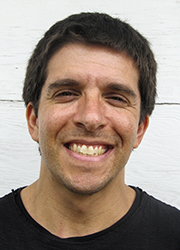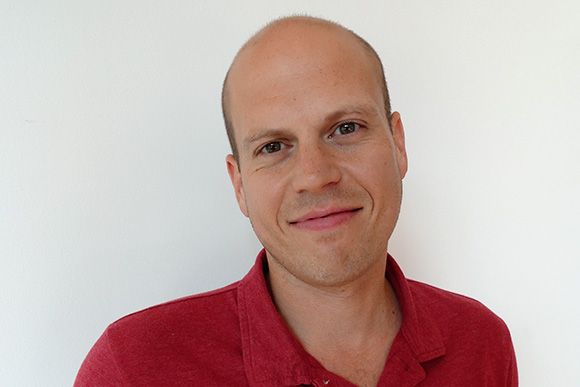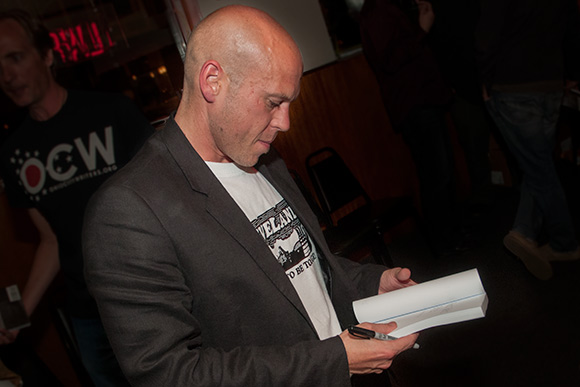'cluster economy' can create a critical mass of expertise in cleveland
Greater Cleveland's workforce is highly educated, with 17 percent of its workforce boasting a graduate or professional degree. That puts the metro 10th in national rankings of top-skilled diploma carrying cities, one spot ahead of Pittsburgh.
In terms of broader economic growth, demographer and urban planner Richey Piiparinen believes Cleveland can take advantage of those big brains through creation of high-density areas of expertise. These clusters of capability can be formed around our internationally touted "eds and meds" sectors, says Piiparinen, head of The Center for Population Dynamics at Cleveland State University (CSU).
A recently released study he co-authored, called “A Newer Geography of Jobs: Where Workers with Advanced Degrees Are Concentrating the Fastest," explained how a Ph.D-carrying research doctor could start a biotech firm, creating direct jobs for college grads within the startup as well as a "downstream" effect of positive impact on the local service economy.
"Put simply, more income, more spending, equals more jobs," Piiparinen writes.
The national median income by education level follow suit, he notes: $27,350 for a high school graduate, $50,050 for a person with a 4-year degree, and $65,565 for a person with an advanced degree
While reality is a bit more complicated, the urban planner envisions ways Cleveland can merge the strengths of its brightest industries. The city's planned 3-mile 1,600-acre health-tech corridor is a prime example of a future cluster economy, as on-site healthcare and technology companies will seek to harness nearby medical institutions and academic centers.
With the HTC serving as an economic engine, its power could trickle down into lower- and semi-skilled healthcare industry jobs for underserved populations living along the corridor in East Cleveland.
"There would be upward mobility for those people, too," says Piiparinen.
The cluster effect can also involve the marriage of industries, adds the population expert. Pair healthcare with polymers, for example, and you'll get a whole new biomedical sector that supplies medical devices for local hospitals. Cleveland's robust medical industry and its educational institutions, meanwhile, could partner to train nurses, which would be a vibrant talent magnet in and of itself.
"You'd be creating a breeding ground for healthcare workers from all over the world," says Piiparinen.
A perfect storm of jobs leading to more jobs is Google's presence in Pittsburgh. The multinational corporation recently expanded its office footprint in the city's Bakery Square development, thanks in part to a talent stream coming out of Carnegie Mellon University's top-ranked computer engineering program. Pittsburgh now has a pipeline to Silicon Valley, which can only intensify the presence of Big Tech in the former Steel City.
Refining talent where it's produced has become a boon for Pittsburgh, and there's no reason it cannot do the same for Cleveland, says Piiparinen. According to a Brookings Institution report released in August, 40 percent of Cleveland's foreign-born college graduates alone stay in town, placing the city 37th out of 118 metros. As attracting immigrant grads from outside Cleveland has proven to be more difficult than keeping those already here, cultivation and amplification of that skilled in-house population is of the utmost importance.
Clustering the city's economy around its most vigorous industries would result in a pool of knowledge that brings money and immigrant talent to the region, Piiparinen says. The metro area's existing ethnic enclaves can play a role in this growth through "chain migration," where Indians in Parma or Russians in Mayfield Heights inform their homeland social networks of what's good in Cleveland.
Nor do you have to be foreign-born to be a link in the chain, says Piiparinen, currently writing a report on this phenomenon for Global Cleveland. East Side Orthodox Jews could spread the Cleveland love to friends and family being priced out of higher-rent cities on the coasts.
With more locally-bred workers boomeranging back to the area after time away (see James, LeBron), connecting them to a network of jobs is a must-have for Cleveland. "You want people to produce in the local economy while they're still young," says Piiparinen. "You can't just build a microbrewery district and tell them to go play. It's about enabling them to bring value to the region."
Piiparinen is currently compiling a follow-up study for the Center for Population Dynamics about how to catalyze advanced-degree workers to create impactful economic opportunities for Cleveland. While he expects the process to be a bumpy one, agglomeration of local and internationally drawn talent stands as the next logical step for the region's continued revitalization.




